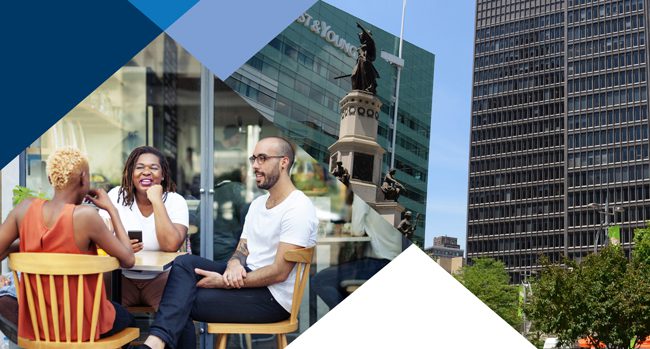
Many businesses, urban planners and government officials knew Michigan, especially cities in Metro Detroit, for being an attractive place for factories and similar developments. That model was fine for many decades, one think tank says, but it is now time for a new set of ideas.
Recently, Michigan Future released a report that focuses on how Michigan has missed opportunities because it has focused too much on its local needs rather than keep up with the changing international economy. That has created many issues, especially a talent gap, officials from the Ann Arbor-based think tank says.

The report, “A Path to Good-paying Careers for All Michiganders: Creating places across Michigan where people want to live and work,” is the latest of a series that aims to help Michigan grow into a more diversified workplace that creates vibrant cities and a broad middle class, says Lou Glazer, president of Michigan Future.
Michigan needs to think about how it is going to create regions and vibrant central cities where college-educated individuals want to live and work, Glazer says. By creating a talent abundance, Michigan can retain and attract knowledge-based companies to our state.
“Our mission (since 1991) has been to try to help Michigan be prosperous, especially in an era of technology and globalization,” Glazer says. “What made the state prosperous for most of the 21st century was factory jobs. But that won’t be in the forecast for the next century. We have to advance or companies will go somewhere else.”
Creating good policy
The report identifies five “placemaking policy levers” that matter most:
1) Welcoming to all: A legal framework that prohibits all forms of discrimination and access to the resources necessary for social and economic mobility.
2) State and local development-friendly regulations that facilitate the creation of high-density, walkable, high-amenity neighborhoods in our cities and inner ring suburbs.
3) Understanding that economies are regional, and each region needs the flexibility to develop and implement their own talent attraction and retention strategies.
4) Providing and paying for world-class 21st Century infrastructure, basic services and amenities.
5) Transportation as the most important placemaking public investment.
The answers in part lie in creating places where college grads want to live, work and play, Glazer says. Talent like this tends to concentrate in areas where middle- to upper-class jobs are centered. They offer high density. They offer great transportation options. They have well-established and full neighborhoods. They offer interesting places for entertainment, tourism and family life.
Talent equals economic growth, Glazer says, and the key to keeping talent is cool cities. Not the kind of cool cities previous Michigan governors have suggested. But really great cities where there are historical landmarks, amazing restaurants, strong schools, impressive cultural institutions and more.
To Glazer, a key to Michigan’s future comes in the form of a quote. The comment comes from former New York City Mayor Michael Bloomberg, who recently wrote in a Financial Times column: “The most creative individuals want to live in places that protect personal freedoms, prize diversity and offer an abundance of cultural opportunities.”
Even though Michigan focused on creating a business environment where cost was the main factor – mostly to attract factories and the like – there is opportunity to shift into human capital and finding ways to keep talent. Even if the weather here is cold most of the year. Even if we have lots of work to do in core cities like Detroit and Grand Rapids. There is hope.
New placemaking and campuses
For example, Detroit has the massive investments of Dan Gilbert, Bedrock Detroit and Quicken. The Illitch family is building new stadiums and businesses. Ford Motor Co. purchased the old Michigan Central Station and is turning it into a huge second campus. That is impressive and speaks to the importance of investing in talent and people, Glazer notes.
“Ford now knows that placemaking is not something you can afford only after you have a strong economy, it’s what you need to do to develop a prosperous economy,” the report says. It continues, “They have also learned that this cannot be done in the suburbs. To be competitive requires public and private investments to create high-density, high-amenity central city neighborhoods where you do not need to own a car.”
But all Michigan has to do to wake up fully is think about that Amazon headquarters bid. At least one of those Michigan cities that tried out for the headquarters spot should have made the Top 20 – Glazer said it was hugely disappointing when not a single Michigan location showed up on that short list.
“Many of Michigan’s governors have focused on the auto industry and plants rather than cities and talent,” Glazer says. “Losing (the Amazon headquarters) bid is representative of what high wage work looks like in America now. It is professionals and managers. It is transit option. All of America is making that same corporate decision to situate their businesses in these cities that highlight talent and human investments.”









